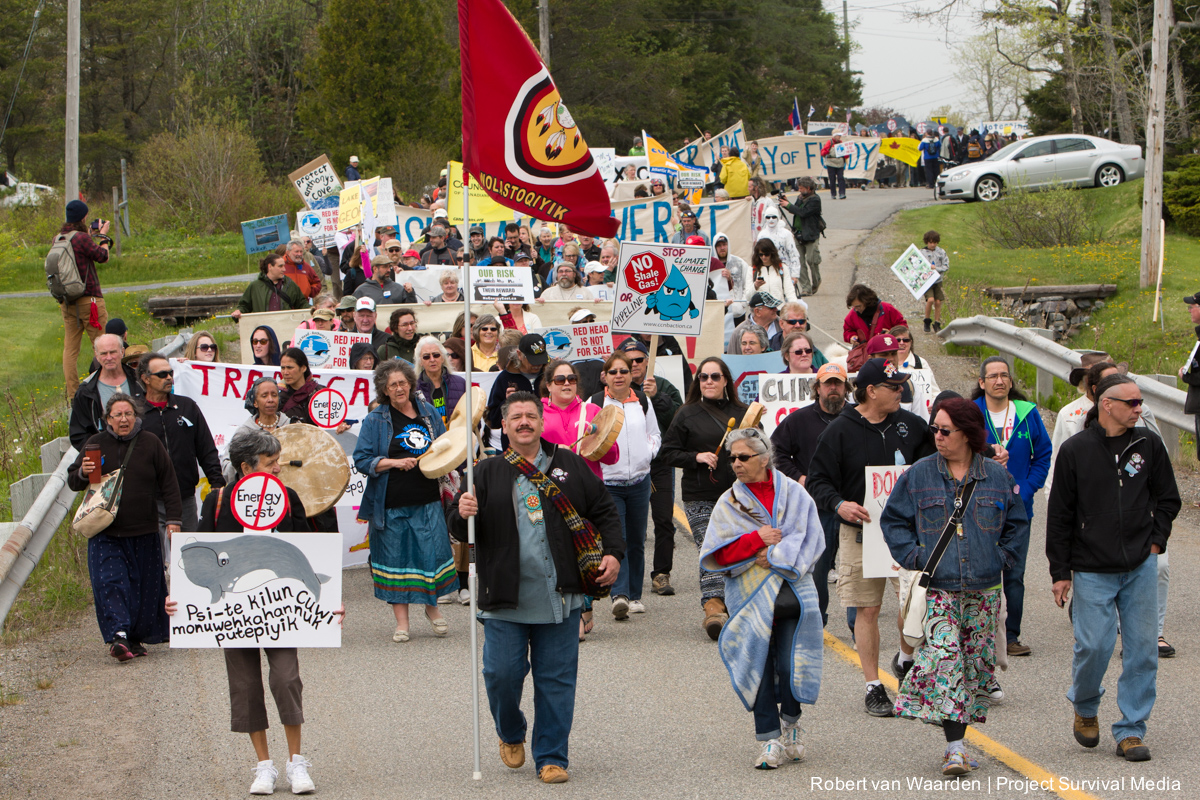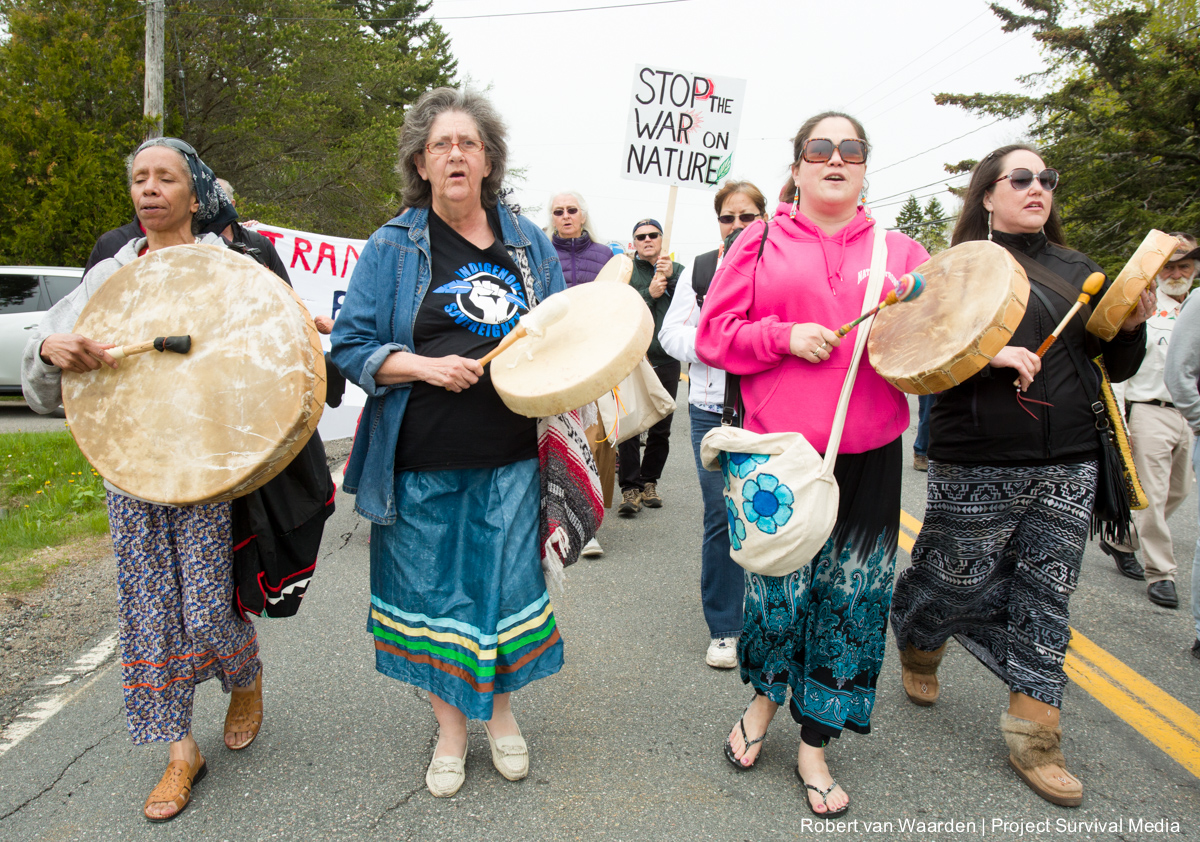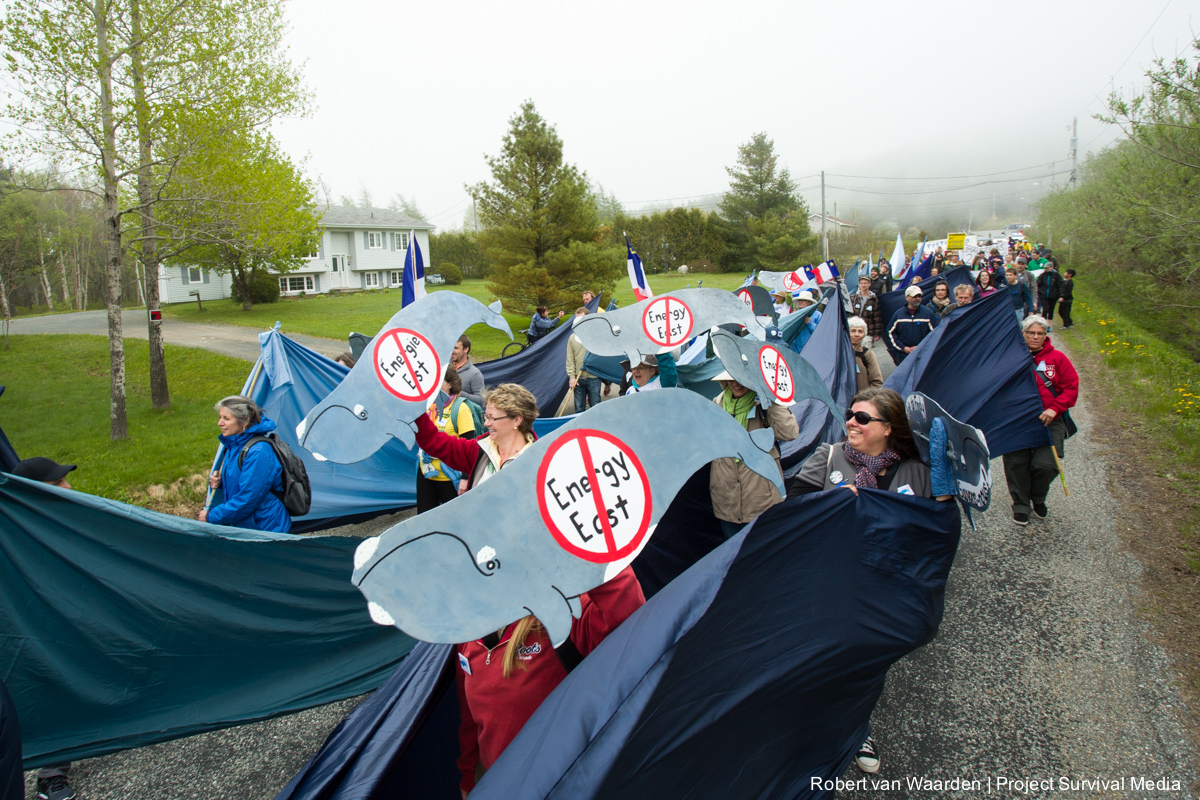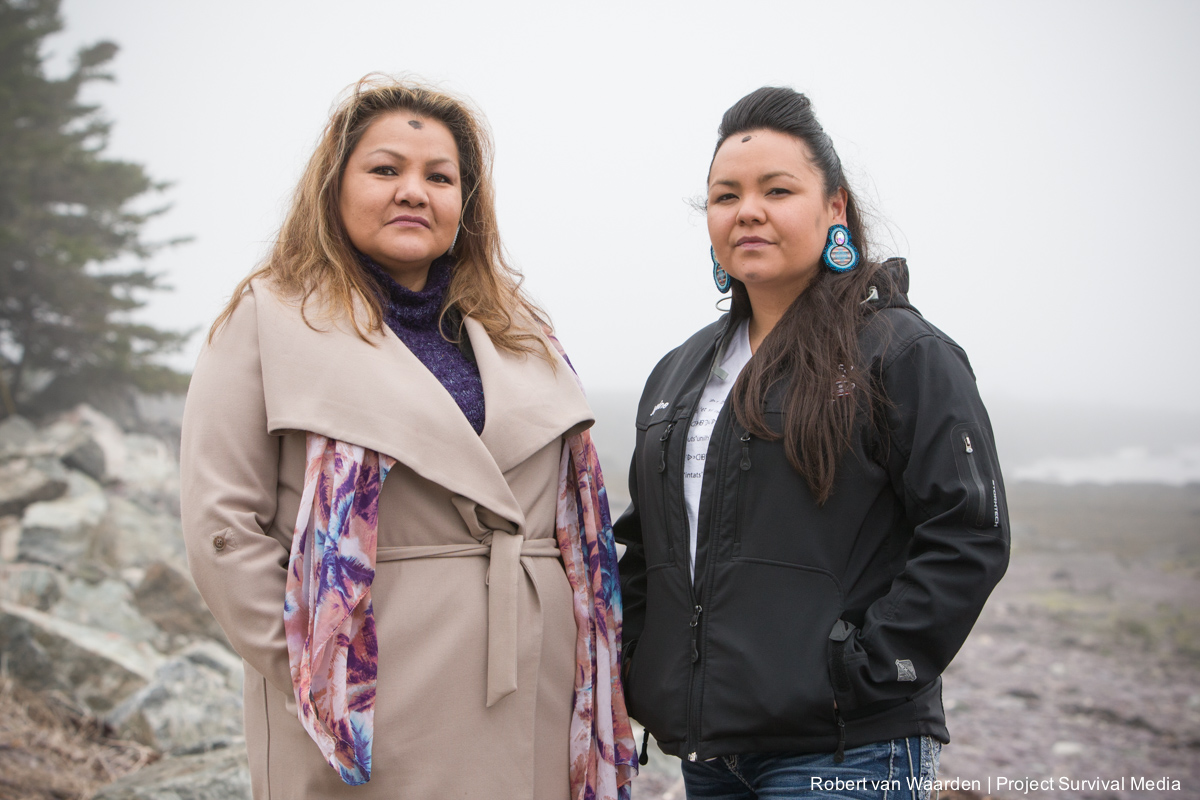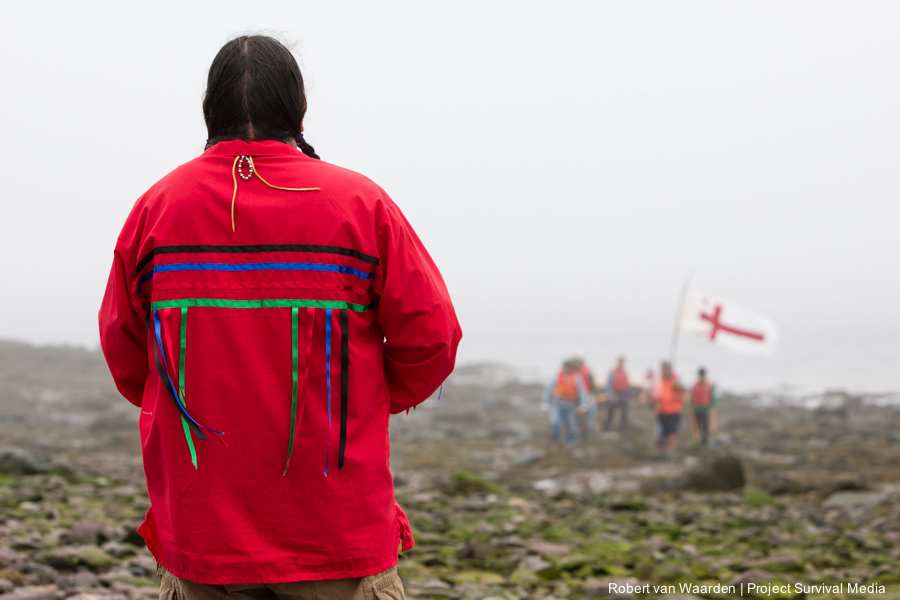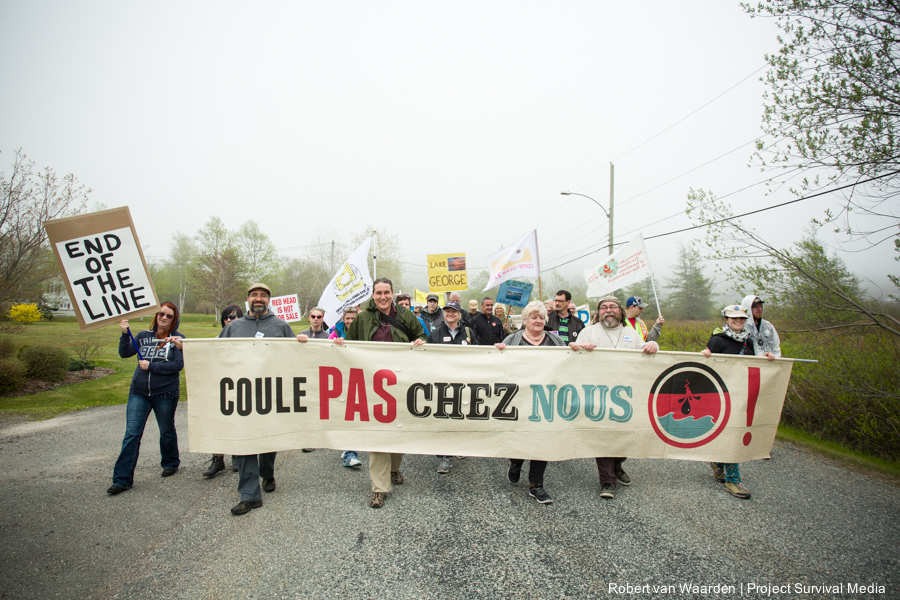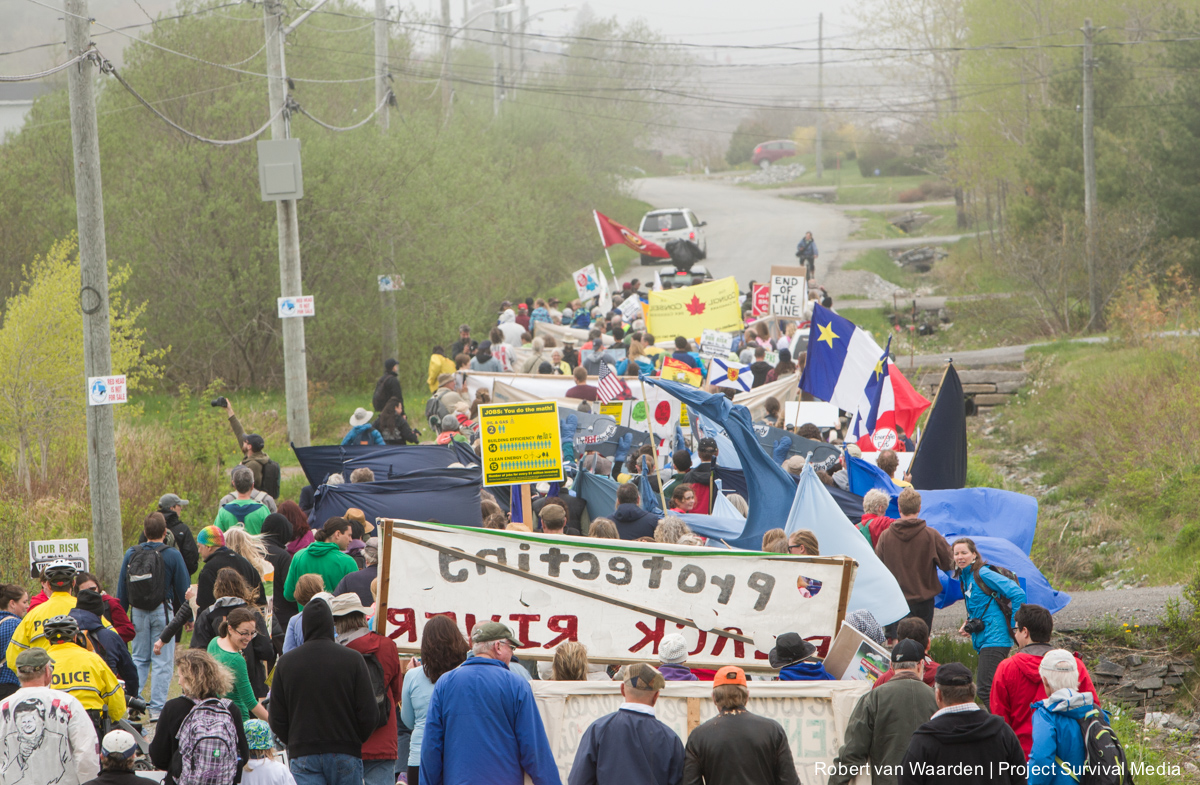350
March to the
End of the Line
Community Resistance Against Energy East
Share on FacebookShare on Twitter
On May 30th, we joined over 700 people gathered in the community of Red Head located in Wolastoqiyik territory, also known as New Brunswick, for the March to the End of the Line.
The Red Head Anthony’s Cove Preservation Association, in collaboration with the Wolastoqiyik First Nations and the Peace and Friendship Alliance, organized this event to mobilize local resistance to the proposed Energy East pipeline that would ship 1.1 million barrels of tar sands oil for export through the Bay of Fundy and install an Irving tanker farm in the community of Red Head.
If TransCanada’s project is approved, the fishing and tourism economy—which amounts to 10,000 jobs—would be in jeopardy, and the critically endangered North Atlantic right whale would be at risk from catastrophic oil spills and increased supertanker traffic on the Bay of Fundy. The Energy East pipeline would also have a severe impact on the climate by accelerating the expansion of Alberta’s tar sands. Find out more about the local Energy East resistance in New Brunswick.
After we marched through the streets of Red Head, hundreds arrived on the Bay of Fundy at low tide to the beach for an opening ceremony. Wolastoqiyik and Mi’kmaq came to shore on a traditional canoe piloted by Elsipogtog war chief John Levi. Local Wolastoqiyik clan Mother Alma Brooks, Grand council spokesperson Ron Tremblay, Geraldine Fluery of the Yinka Dene Alliance and 350.org Clayton Thomas-Muller raised their pipes in ceremony and sang old traditional trading songs of the Wolastoqiyik nations to welcome them to the march.
Clayton Thomas-Muller, 350.org’s Indigenous Extreme Energy Campaigner, was there doing a video series from the action.
After a series of inspiring speakers from local environmental groups, labour representatives, social justice organizations, as well as guests from the Yinka Dene Alliance in British Columbia, the South Portland community in Maine, and the Coule pas chez nous campaign from Cacouna, Quebec, the 700 participants joined hands along the shoreline to symbolically draw a line in the sand of the Bay of Fundy to say no to TransCanada’s Energy East and Irving’s super port and tanker farm.
350.org is honoured to support our brothers and sisters in Atlantic Canada on this critical front to stop the expansion of the Canadian tar sands and its associated infrastructure in defence of climate, economy and peoples.
Communities along the proposed Energy East route will continue to stand up against tar sands infrastructure on July 4th during the We > Tar Sands action for Jobs, Justice & the Climate across Canada. Click here to find a July 4th action near you.
Clayton Thomas-Muller, Indigenous Climate Organizer with 350.org
Aurore Fauret, Energy East Organizer with 350.org
Photos by Robert van Waarden, Project Survival Media
News Coverage
How do you stop a pipeline when one family owns both the oil and the media? (Ricochet) >>
Confronting Irving Oil and TransCanada at the end of the line in New Brunswick (Ricochet) >>
La vague d’opposition à Énergie Est rejoint la fin du pipeline (350.org) >>
Protesters rally against Energy East Pipeline in N.B. (CTV) >>
New Brunswick gears up for another fight over energy project (APTN) >>
Hundreds gather in Red Head, N.B. to protest Energy East Pipeline (Global News) >>
